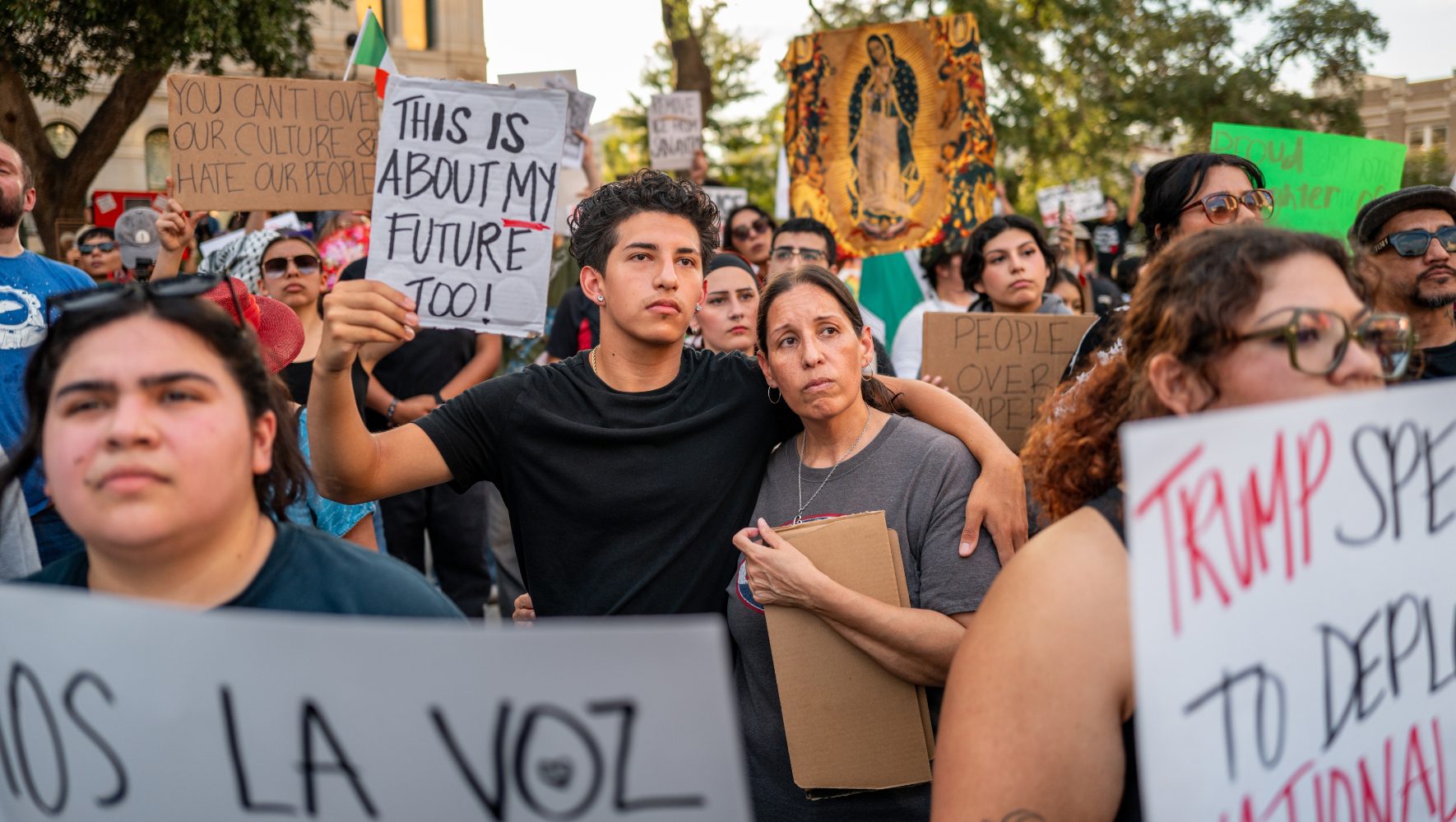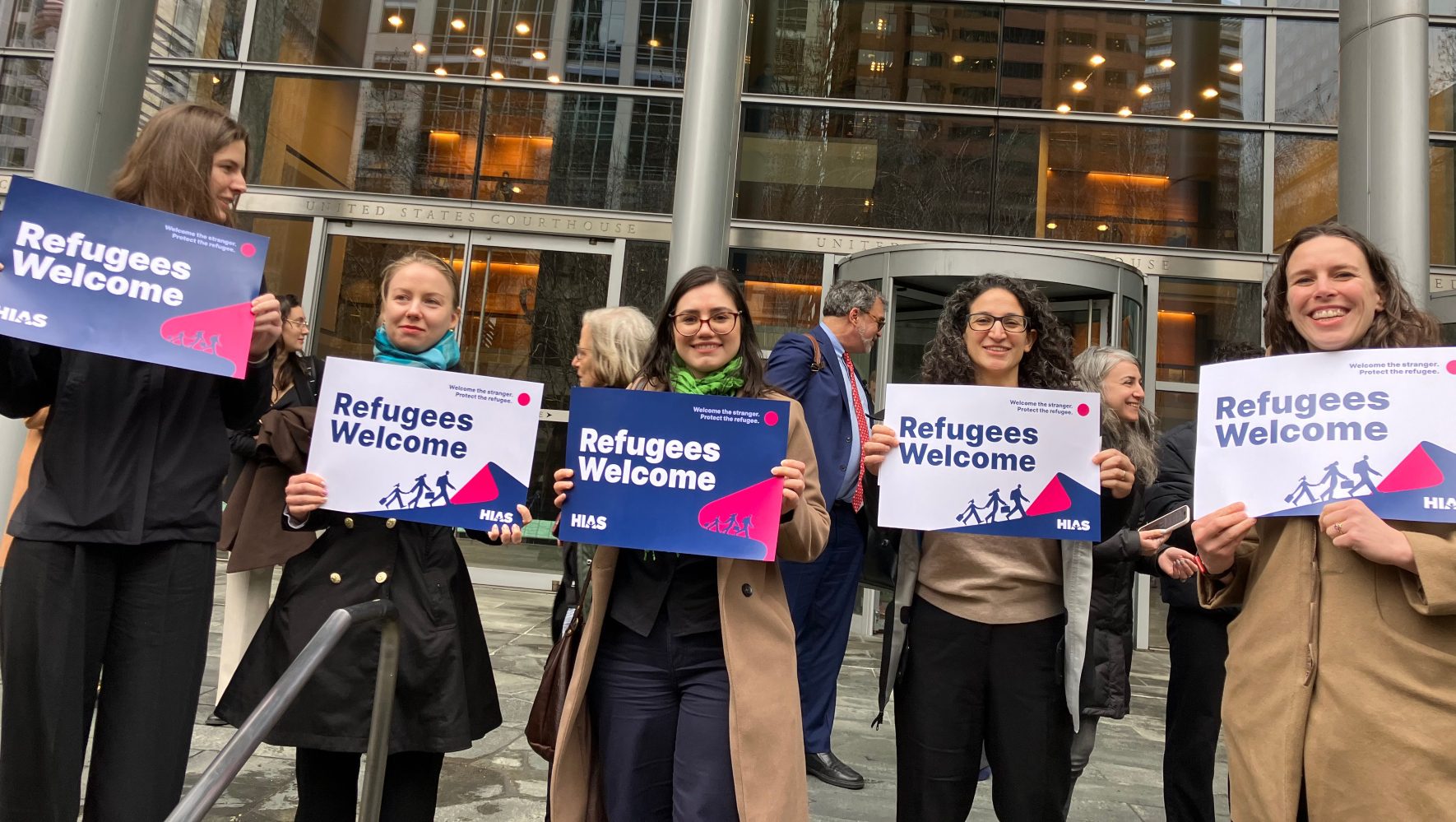Statement to the House Judiciary Subcommittee on Immigration & Border Security
Feb 04, 2016
HIAS submitted the following statement into the Congressional Record for the House Judiciary Committee's Immigration and Border Security Subcommittee hearing on Central American migrants on February 4, 2016.
There are more displaced people in the world today than there has been at any other time in our history. Violence in the Middle East and Africa contribute to the increasing numbers of displaced people, but these distant conflicts are not the only source of refugees. We are seeing a growing refugee crisis just to the south of the U.S. in Central America. El Salvador, Guatemala, and Honduras (collectively referred to as the Northern Triangle) are three of the most violent countries on earth. El Salvador has the highest murder rate in the world, with an increase of 70% between 2014 and 2015. Violence against women and girls is rampant and most times goes unpunished. Children are vulnerable to recruitment by gangs and exploitation.
A recent report released by the UN Refugee Agency (UNHCR) noted that two-thirds of the women they interviewed stated that they tried to find protection from harm by fleeing within their home country with no success. Eventually, the women felt that they had no option but to flee. With no protection or recourse at home, people have fled and sought asylum in surrounding countries. UNHCR reported a 1,185% increase in asylum applications throughout the region. This is a refugee crisis and we will continue to see arrivals in the United States until people are able to find protection in their community or are provided alternative ways to find safety.
The U.S. response to the increase in arrivals from the Northern Triangle has largely been one rooted in the idea of border security rather than humanitarian assistance. Legislation has been introduced in Congress that would make seeking asylum more difficult and would erode the protections guaranteed to unaccompanied children. The Administration implemented a policy of detention for families and helped Mexico increase capacity to intercept asylum seekers traveling through the country, despite the country’s poor record of providing protection. Most recently, the Department of Homeland Security began arresting, with the intent to deport, women and children from the Northern Triangle.
These policies, aimed at deterring asylum seekers from coming to the United States, have not stopped people from leaving their home countries. As dangerous as the journey from the Northern Triangle is or as unlikely success in an asylum claim may be, the alternative of staying is far worse. The current strategy of the U.S. government ignores the fact that staying in a home country for many asylum seekers will result in death or injury and that the risks associated with fleeing are worth the risk. If the U.S. wants to discourage dangerous migration by asylum seekers then policy must reflect the reality of the situation. The U.S. must recognize that we are dealing with a refugee crisis.
HIAS, is a partner to the U.S. government in the resettlement of refugees. The U.S. is a humanitarian leader in providing aid and resettlement to refugees coming from almost everywhere in the world. HIAS is concerned that despite the U.S.’s history with refugee protection that our country continues to largely ignore the refugee crisis in the Northern Triangle. The current approach of the U.S. government is largely inconsistent with American and Jewish traditions of offering a chance at a new beginning to those who seek safety and freedom. HIAS encourages the U.S. to work with UNHCR, other governments in the region, NGOs and civil society to create alternatives for people who are victims of or are targets of persecution or violence in the Northern Triangle.
A comprehensive plan must include a strategy for addressing the causes of flight and capacity building for local NGOs to provide shelter and services to those in need. The plan must also include the ability for NGOs to identify and refer vulnerable people to UNHCR and/or the U.S. government for a safe evacuation from their home country if necessary. Finally, immigration options must be available, not only in the United States but throughout the region. One option would be offering temporary protected status to people from the Northern Triangle countries that are already in the U.S. Resettlement must be expanded and neighboring countries should be encouraged to strengthen domestic asylum systems. The current U.S. in-country processing program in the Northern Triangle countries should be expanded to include more types of asylum seekers and greater protection for applicants. Only when options are available will we begin to see a decrease in arrivals at our southern border.
It is important to note that even with alternative options the U.S. must still provide a meaningful opportunity for asylum. Seeking asylum in the United States is not a crime. The right to seek asylum without fear of punishment is recognized in both US law under Section 208 of the Immigration and Naturalization Act and international law under Article 31 of the United Nations Refuge Convention, which the US acceded to in 1968. The U.S. must adhere to these principles or there will be little incentive for other countries in the region to do likewise. U.S. leadership in this area is imperative for any progress to be made in addressing this crisis.



